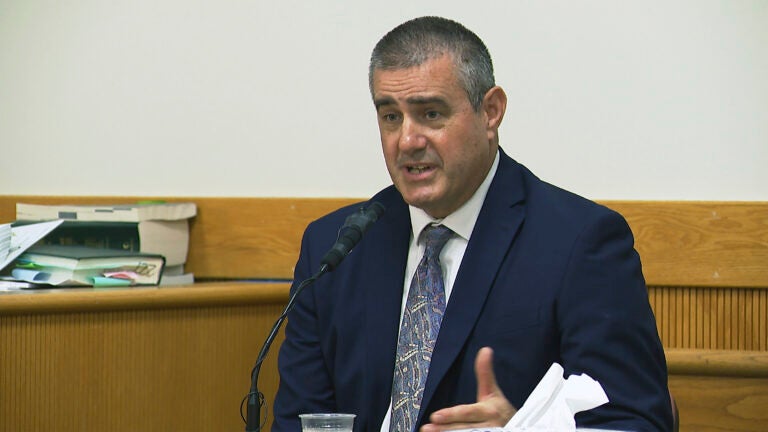PROVIDENCE, R.I. — A former Rhode Island high school basketball coach, Aaron Thomas, has been acquitted of second-degree child molestation and second-degree sexual assault, following a high-profile trial that scrutinized his controversial practice of conducting “naked fat tests” on student-athletes. Instead, a jury of 12 found Thomas guilty of the lesser charge of misdemeanor battery, a verdict delivered on Monday.
The decision comes after nearly six weeks of intense courtroom proceedings, during which defense attorneys argued that Thomas’s actions, while inappropriate, did not constitute criminal behavior. The defense maintained that Thomas did not engage in the tests for sexual gratification, a critical element required for the original charges.
The Trial and Verdict
Throughout the trial, the prosecution painted a picture of a coach who exploited his position to access young athletes under the guise of pseudo-scientific testing. “Above all else, this case is about the victims who suffered greatly behind closed doors,” stated Attorney General Peter Neronha. He emphasized that the actions were not merely poor judgment but criminal conduct.
In contrast, defense attorney John MacDonald expressed satisfaction with the jury’s decision, stating, “We are very satisfied that the jury saw the case as we saw it, no sexual intent whatsoever.”
Background and Controversy
Aaron Thomas, once a respected figure at North Kingstown High School, conducted these tests over several decades, asking athletes if they were “shy or not shy” before instructing them to disrobe. The tests involved pinching various areas of the body, including near the groin and buttocks, to purportedly assess body fat.
Thomas testified that he conducted these tests on more than 600 students, with approximately 80% removing their underwear. The tests were initially performed in a small, closet-like room before moving to his office.
“Roughly 80% of them took their underwear off during the test,” Thomas admitted during his testimony.
Legal and Scientific Perspectives
Body fat composition experts testified that the methods used by Thomas were not scientifically valid. Furthermore, Thomas himself acknowledged that removing underwear was unnecessary for assessing body fat.
Under Rhode Island law, misdemeanor battery carries a maximum one-year prison sentence and a possible fine of up to $1,000. Thomas is scheduled for sentencing on June 26.
Implications and Future Considerations
The case has sparked discussions about the statute of limitations for such offenses in Rhode Island. Attorney General Neronha has advocated for extending the statute from three to ten years, which would allow for more comprehensive legal action in similar cases.
The charges against Thomas pertained specifically to incidents involving two former students, one of whom was under 14 at the time of the tests in September 2000 and February 2002. The defense questioned the reliability of the testimonies, highlighting one student’s mental health issues and suggesting financial motives linked to a civil lawsuit.
The outcome of this trial could influence future legal standards and educational policies regarding the conduct of school officials and the protection of students. As the community grapples with the verdict, the broader implications for school safety and oversight remain a topic of significant concern.
As the legal proceedings conclude, the focus shifts to the sentencing and any potential changes in legislation that may arise from this case. The attention on this trial underscores the ongoing need for vigilance and reform in safeguarding student welfare in educational settings.
